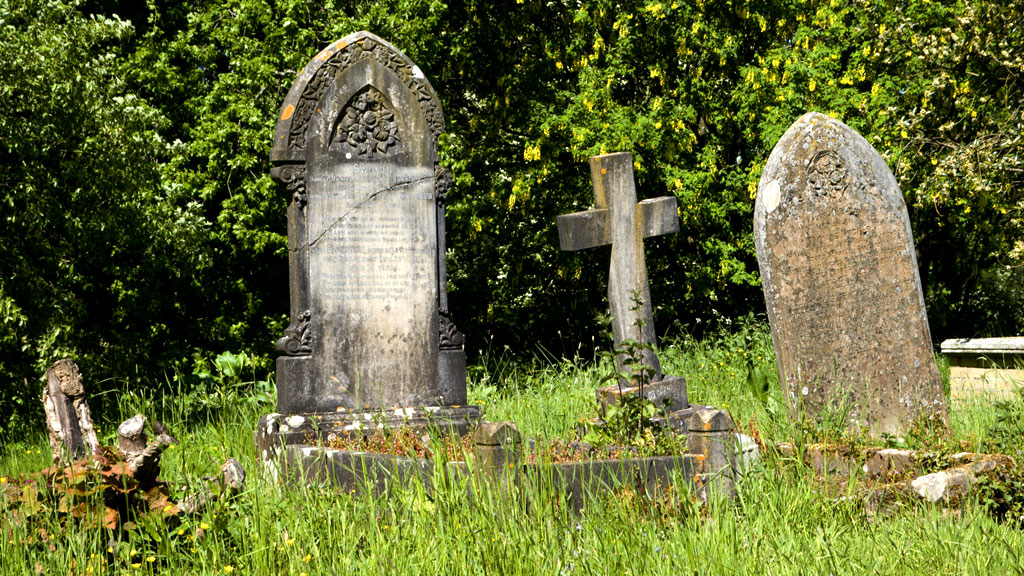Grave questions: where do we go when we die?
It was once just a question asked by children but is now a growing concern as a study shows we are running out of space for graves. Do we care what happens to our bodies when we die?

Being able to choose where we will be buried, and with whom, is something we take for granted.
But having a say on this emotive issue is fast becoming a luxury: within the next 20 years, more than every four in 10 cemeteries in England expects to be full, and a quarter say they will run out of space in just 10 years.
The situation has caused experts to call for a change in the law so that graves over 75 years old can be reused. This would mean exhuming existing remains, deepening the grave, reburying the original remains and then using the extra space for a new burial.
The unsustainable nature of cemeteries is resulting in significant rises to the cost to of burials. Mel Rees, Sun Life Direct
In some areas, councils have already piloted grave “reuse” or used carparks and pathways for burial space.
The combination of a growing population and finite land space has resulted in the current situation, despite three quarters of the population now opting for a cremation. And it is of huge concern to those determined to be buried in a certain area, with family members, or whose religion or culture demands a burial.
“Families want to be buried together, but there’s no guarantee that burial will remain local, or even available at all in some areas,” said Dr Julie Rugg, of the Cemetery Research Group at the University of York.
The BBC Local Radio survey contacted 699 burial authorities in England, of which 358 responded. Councils in Gosport, Mole Valley, Crawley and Rother said they would run out of cemetery space in the next five years. But some councils, including Tandridge in the south east, said they had already come up short.
The price of death
The shortage of burial space has also led to hugely increased costs in some parts of the country. A study by life insurance company Sun Life Direct found that burial fees have risen by 69 per cent in the last six years, so that the average costs of dying now stands at £7,622.
“The unsustainable nature of cemeteries is resulting in significant rises to the cost to of burials,” Mel Rees from Sun Life Direct told Channel 4 News. “This often leaves families in a difficult position upon the death of a relative as they try to fulfil the wishes of the deceased, but find they are financially unprepared.
UK society is changing in the way people think about death. Deborah Smith, NAFD
“Almost one in five people who have organised a funeral in the past four years struggle to meet the cost.”
Burials are also on average about £1,000 more expensive than a cremation. But even though cremations are not limited, these costs are also rising, and have gone up by 51 per cent since 2007.
Both the funeral and insurance industries are calling for the fees charged by local authorities to be reviewed by the central government. The national association of funeral directors (NAFD) said the current situation is a postcode lottery in terms of costs and availability of options, and said the government should consider a cap on fees charged by local authorities.
What taboo?
But there is hope: after years of keeping quiet about death and dying, we are finally starting to open up, and that is increasingly reflected in our funerals and what we choose for our remains.
“UK society is changing in the way people think about death,” Deborah Smith, NAFD spokeswoman, told Channel 4 News.
“One of the toughest things for bereaved families is trying to work out what they think the person might have wanted. But there is a big move towards getting people to talk about what they want.”
This has resulted in increasingly unique twists on our final journey. A few weeks ago, the coffin of a retired JCB employee was brought to the church in the bucket of a digger. There has also been a trend towards using the ashes of loved ones in ink for tattoos, said Ms Smith. And so-called “death cafes” have popped up in nine different countries, including the UK, which allow people to have frank conversations about death and dying.
“It’s a combination of changing times, people being very comfortable with choice in all areas of life, including the final journey, and that there are some brilliant organisations out there helping people with their decisions,” she added.
The growing shortage of cemetery space in England is likely cause people to look beyond the grave for their burial options, and reusing graves, or being buried in a carpark may well become the norm. Burials could even become a thing of the past, with a few exceptions to the rule.
But in the meantime, the message from funeral directors is that it is good to talk. Because where we end up is something that we will all have to deal with. “We’re all trying to help people talk about it,” said Ms Smith. “In other cultures, it is very much a part of life.”
-
Latest news
-
Taylor Swift’s new break-up album breaks records3m

-
NHS trust fined £200K for failings that led to death of two mental health patients3m

-
Sunak vows to end UK ‘sick note culture’ with benefit reform3m

-
‘Loose talk about using nuclear weapons is irresponsible and unacceptable’, says head of UN’s nuclear watchdog3m

-
‘There wasn’t an Israeli attack on Iran,’ says former adviser to Iran’s nuclear negotiations team7m

-




